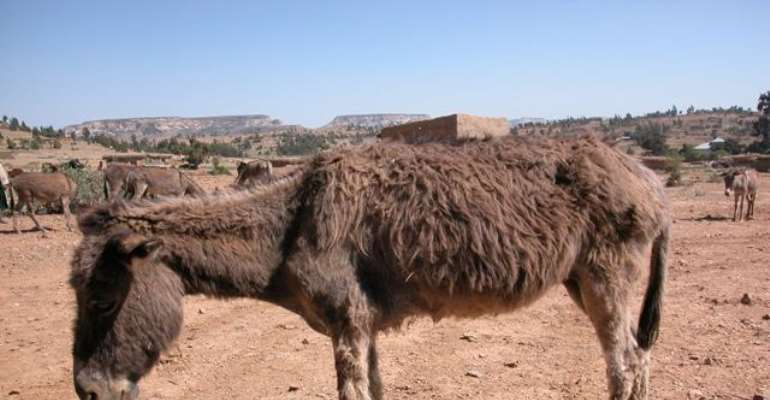Equine influenza epidemic in West Africa

International animal welfare charity The Donkey Sanctuary is warning of a potential disease epidemic in West Africa, as Nigeria declares an outbreak of Equine Influenza, a highly contagious disease that affects all equines. Reports on the World Organisation for Animal Health’s (OIE) website suggests that the outbreak, which has infected 3,000 equines in the country, is being attributed to the ‘illegal movement of donkeys’, and the charity views this incident as a plausible symptom of the unregulated global movement and trading of donkeys for their skins.
The Donkey Sanctuary is hearing from partners in neighbouring countries Mali and Ghana of donkeys showing similar characteristics of the disease, including fever and nasal discharge, although these have not been officially confirmed. The current outbreak in the UK and previous outbreaks in Australia and China have proven to have costly consequences to the equine populations, putting at risk not just working equines but domestic and competing animals too.
As a member of the OIE’s consultative group International Coalition for Working Equids, The Donkey Sanctuary is now taking steps to alert at-risk countries of the threats of an equine influenza epidemic and to offer support to governments and donkey-owning communities alike to help with the situation, including distributing critical information to communities on how to prevent further spread of the disease.
At the same time, the charity is imploring the at-risk countries to immediately prohibit movement of donkeys along trade routes and to tackle illegal movements.
With regards to the wider trading of donkeys for their skins, The Donkey Sanctuary believes the biosecurity threats and risk of disease spread are also heightened in such an unregulated and global trade – both in live animals and their skin-product thereafter. It believes the trade must halt until there is evidence to demonstrate that the trade is humane, sustainable and free from the risk of the spread of disease.
